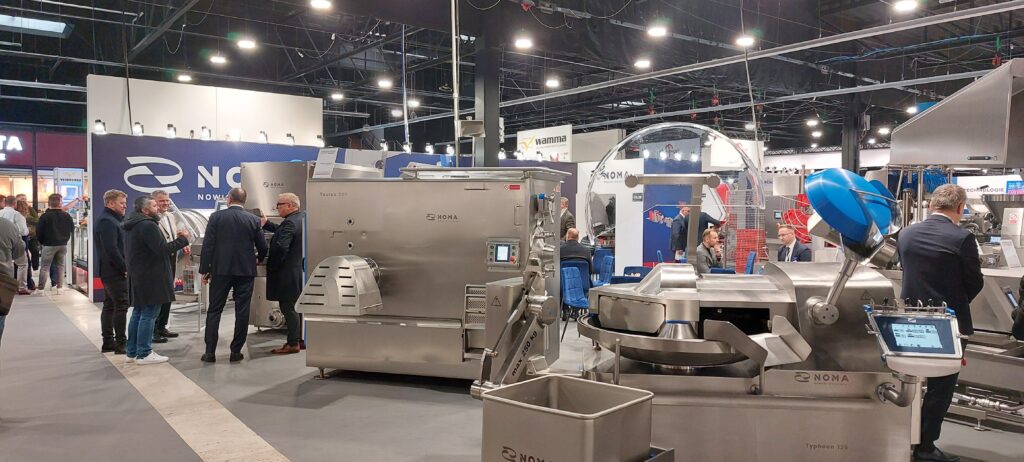2025-05-10
ArticleIndustrial hygiene plays a crucial role in food production. Discover the most important practices that help ensure cleanliness and safety in production processes and final products.
Hygiene in food machinery is essential for maintaining food safety in production facilities. High food machinery hygiene standards protect consumer health and ensure consistent product quality. Every day, food plants aim to eliminate microbiological and chemical hazards. Employees must follow strict sanitary procedures to prevent contamination. Food machinery sanitation influences the final product quality and the company’s reputation. With consumers increasingly attentive to hygiene, producers must invest in high-quality machines and ongoing staff training.
Maintaining proper food machinery hygiene standards is also a legal obligation. Sanitary and epidemiological regulations require producers to meet specific requirements. Neglecting hygiene can lead to severe legal and financial consequences. Therefore, food companies must continuously monitor every stage of production. Applying best hygiene practices minimizes the risk of contamination. Hygiene is the foundation upon which consumer trust is built, helping foster long-term relationships and guarantee safety.
Thorough cleaning of containers and stuffing carts is a key element in maintaining food machinery hygiene. These daily tasks aim to eliminate potential sources of microbiological contamination that could compromise product safety and quality. Every container and cart must be cleaned in accordance with strict food machinery sanitation protocols to prevent the spread of bacteria and pathogens. The cleaning process should use specialized, food-safe detergents that effectively remove contaminants.
Regular cleaning of containers and carts is a legal requirement and critical to building the facility’s reputation. Following proven cleaning procedures helps maintain high food machinery hygiene standards, earning consumer trust. Staff responsible for these tasks must be properly trained to avoid mistakes that could lead to contamination. Implementing systematic cleaning schedules and frequent performance checks contributes to minimizing contamination risks, directly enhancing food safety and customer satisfaction.
Modern washing systems are key in maintaining hygiene in the food industry. Technological innovations in this area allow for the effective removing contaminants, which is essential for food machinery sanitation. The systems used in food production facilities boost efficiency and save time and resources. Automation ensures precise control over washing parameters, reducing human error and guaranteeing consistent results. Today’s solutions are also environmentally friendly, reducing water and chemical usage.
These washing systems are designed to meet the most rigorous food machinery hygiene standards. Their versatile applications include cleaning equipment, packaging, and production surfaces, improving both food safety and final product quality. Investing in high-quality machines and advanced cleaning systems—such as those found in the Cleanetic Washing Systems—also boosts a company’s reputation. It enhances consumer trust and ensures compliance with sanitary regulations, which is vital for any operation in the food sector.
Container stacking systems are essential for maintaining hygiene in food machinery operations. These systems help organize space efficiently, which is critical for cleanliness and order. Proper stacking minimizes the risk of cross-contamination, directly contributing to food safety. Using modern stacking solutions maximizes available space, supporting adherence to strict hygiene standards. These systems also allow easy access to cleaning and disinfection, which is key for hygiene staff.
Efficient container stacking improves the overall cleaning process, vital for achieving high product quality. It enables swift and effective execution of hygiene procedures, improving operational productivity. Adopting these systems is an organizational improvement and a way to meet stringent sanitary regulations. Investing in modern stacking systems supports a company’s positive image and builds consumer trust, an essential asset in the competitive food industry.

2025-11-28
Article
2025-09-08
ArticleFollow the latest events and changes in our company – stay up to date with what’s important.
